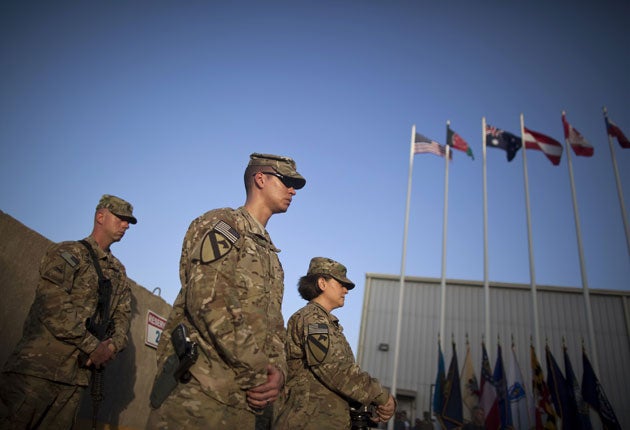When I served in the US Army, our drill sergeants all knew the truth about Afghanistan. Politicians ignored them
I never heard a sergeant or officer who had deployed to Afghanistan even so much as hint that we had a chance of ‘winning,’ whatever the hell that even meant

Nearly twenty years after its liberation, Kabul has fallen to the Taliban, and it’s not my place to tell you what the Biden administration should or should not be doing because I have no idea. Despite serving in the military, I didn’t deploy to Afghanistan. I’m not a foreign policy expert or specialist in Middle East diplomacy. I have no cultural or familial connections to that country. Yet, I find myself heartbroken and worn out by the tragedies this week in a country I’ve never really known, the culmination of twenty years — and my god, I can’t believe it’s been twenty years — of buried caskets and broken promises and overextended credit. But most surprising in all of this is that I knew this was coming fifteen years ago.
I enlisted in late 2005, shipped out to infantry basic training, and began the work of reshaping myself from a child into a grown adult. I was surrounded by other young people making the same journey, and as I look back on that time, it’s stunning to me how often we heard from drill sergeants and members of the training cadre — all of whom had deployed to Afghanistan by that point — that we had no business being there. We were told the war was unwinnable. That didn’t stop us from training, of course, and may speak to the unusual zeal our drill sergeants had in putting us through the wringer. It seemed the sole focus of our training, at least in their eyes, was not so much in pursuit of winning a war as ensuring we had the skills we needed to stay alive.
Many of us didn’t stay alive. I was one of the lucky ones, assigned to the 3rd U.S. Infantry Regiment, the Army unit tasked with ceremoniously burying the remains of fallen soldiers after their return from Iraq and Afghanistan. Day after day, month after month, year after year, I was assigned to marching platoons and casket teams that carried our siblings-in-arms to their final resting place. My time there spanned the deadliest years of the War on Terror. We were busy. In the back of my mind, I heard the words of my drill sergeants and tried to make sense of why the hell we were still going down this road. It was tempting to turn off your brain because otherwise, the unanswered questions that were stuffed deep inside would emerge and haunt the most committed among us.
Six months before I left for West Point, my friend Joseph M. Hernandez, a husband and father of two, was killed by an IED in the Zabul province of Afghanistan alongside two others in his unit. He became the first enlisted soldier to be buried with full honors in Arlington National Cemetery, where less than a year prior he had carried the caskets of others. He was 24, and “this war is unwinnable” echoed in my mind louder than ever.
I remembered those words when I was a cadet at the Academy in 2010 and President Obama delivered his famous Afghanistan strategy speech to the Corps of Cadets, doubling down on our country’s investment. I remember when he said: “As Commander-in-Chief, I have determined that it is in our vital national interest to send an additional 30,000 U.S. troops to Afghanistan,” and I felt a pit in my stomach. I firmly believe President Obama felt he was doing the right thing, and yet, even at that time, his confidence in us paled in comparison to the lived experiences of sergeants I had known on the ground there. It struck me that in all my time as an enlisted soldier, I had never heard a sergeant or officer who had deployed to Afghanistan even so much as hint that we had a chance of “winning”, whatever the hell that meant back then.
I have tried my best not to think too much about all that’s been lost and for what supposed just cause it was all thrown into the jaws of fate. The money is one thing — one estimate has the total cost of the War in Afghanistan at about a trillion U.S. dollars — but the human cost is soul-shattering: more than 47,000 Afghan civilians, 66,000 Afghan military and police, 2,448 U.S. service members, nearly 4,000 U.S. contractors, 1,144 allied troops, 444 aid workers, and 72 journalists.
And yet, a cost that can’t be quantified is the rot of distrust so many of my generation now feel toward our political leadership, particularly among those of us who served. Even within the most generous reading, it is difficult not to feel betrayed by a political class who ignored the common sense on the ground.
They felt our lives were worth their gamble, and what do we now have to show for it?
Charlotte Clymer is a writer, military veteran, and member of the Truman National Security Project. You can find more of her work at Charlotte’s Web Thoughts
Join our commenting forum
Join thought-provoking conversations, follow other Independent readers and see their replies
Comments
Bookmark popover
Removed from bookmarks